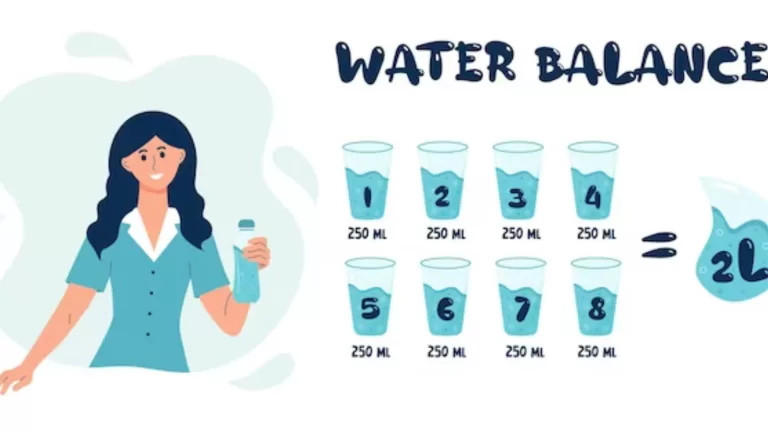Introduction
In the quest for a healthy lifestyle, one question remains ever-relevant: How much water should you drink every day? Staying hydrated is essential for overall well-being, as it is vital for numerous bodily functions. In this article, we’ll explore the importance, the factors influencing your daily water intake, and tips to help you maintain a healthy hydration level.
1. Understanding the Importance of Hydration
Before diving into the specific daily water intake recommendations, let’s first understand why staying hydrated is vital. Water is the primary component of our body, making up about 60% of our total body weight. It is involved in various essential functions, including:
Regulating Body Temperature: It helps to regulate body temperature through sweating and maintaining thermal equilibrium.
Transporting Nutrients: It facilitates the transport of essential nutrients, vitamins, and minerals throughout the body.
Removing Waste: Adequate hydration facilitates the elimination of waste products and toxins through urination and bowel movements.
Cushioning Joints: It acts as a lubricant for joints, reducing friction and preventing discomfort.
2. Factors Influencing Daily Water Intake
The appropriate amount that one should drink daily can vary depending on several factors. Some of these factors include:
Body Weight and Size
Larger individuals generally require more water to maintain proper hydration levels compared to those with smaller body frames.
Physical Activity
People who engage in regular physical activity or exercise tend to lose more water through sweat and may need to increase their daily intake accordingly.
Climate and Weather
Hot and humid climates can cause excessive sweating, necessitating higher consumption to prevent dehydration.
Health Conditions
Certain health conditions, such as fever, diarrhea, or vomiting, can lead to increased fluid loss, requiring extra fluid intake.
3. Recommended Daily Water Intake
General Guidelines by Age Group
Young Children (Ages 1-3):
Young children need about 4-5 cups (950-1200 ml) a day, consumed from food and beverages. Encourage them to drink small sips throughout the day to meet their hydration needs.
School-Age Children (Ages 4-8):
Children in this age group should consume approximately 5-7 cups (1200-1700 ml) daily. As they continue to grow and engage in various activities, staying properly hydrated supports their overall health and wellness.
Preteens and Teens (Ages 9-13 and 14-18):
Preteens need around 7-9 cups (1700-2200 ml) each day, while teenagers should aim for 8-11 cups (1900-2600 ml) to meet their increased energy demands. The increased energy demands during these stages of life necessitate higher hydration levels.
Young Adults (Ages 19-30):
Young adults between the ages of 19 and 30 should aim for about 9-13 cups (approximately 2200-3100 ml) every day. However, it is important to note that individual factors such as activity level and body size can influence specific water intake needs.
Adults (Ages 31-50):
Adults, both men and women, aged 31 to 50 should aim for approximately 8-12 cups (approximately 1900-2900 ml) per day. Ensuring adequate hydration is vital for supporting overall health and vitality during this stage of life.
Older Adults (Ages 51+):
As we age, our thirst sensation may decrease, making it crucial for older adults to consciously consume 7-10 cups (1600-2400 ml) daily.
4. Signs of Dehydration
Recognizing Dehydration
Dehydration can lead to various adverse effects on the body. Recognizing the signs of dehydration is crucial and includes:
Dark-colored urine
Dry mouth and throat
Fatigue and dizziness
Headache
Reduced urine output
5. Staying Hydrated Throughout the Day
Tips for Maintaining Hydration
To ensure you stay hydrated, consider these helpful tips:
Carry a Refillable Bottle: Keep a refillable bottle with you to encourage regular sips throughout the day.
Set Reminders: Set alarms or reminders on your phone to prompt you to stay hydrated at regular intervals.
Eat Hydrating Foods: Consume hydrating fruits and vegetables, such as melon, cucumber, cantaloupe, Tomatoes, and oranges.
Monitor Your Urine Color: Aim for a pale straw-like color, indicating adequate hydration.
6. Myths About Daily Water Intake
It’s time to debunk some common myths about daily Intake:
Myth 1: Eight Glasses of Water a Day
Contrary to popular belief, there’s no scientific basis for the “eight glasses a day” rule. The amount each person needs varies, as we discussed earlier.
Myth 2: Thirst Is Not a Reliable Indicator
Your body’s thirst mechanism is generally reliable. If you’re thirsty, it’s time to hydrate. However, in some cases, such as during intense physical activity, you may need to proactively drink water to stay ahead of your thirst.
Myth 3: All Fluids Contribute Equally
While it’s true that other beverages and hydrating foods count toward hydration, some drinks like caffeinated beverages can have a diuretic effect, leading to increased water loss.
Conclusion
Maintaining proper hydration is fundamental for our health and well-being. The right amount of water every day ensures optimal bodily functions, aids digestion and promotes overall vitality. Remember that your hydration needs are unique and depend on various factors. By adhering to the guidelines, staying proactive, and making wise choices, you can easily meet your daily water intake and live a healthy life.
Frequently Asked Questions (FAQs)
How much water per day is healthy?
The recommended daily water intake for optimal health varies by age and individual factors but generally falls between 8 to 13 cups for adults.
What water does do for your skin?
It plays a crucial role in maintaining healthy skin by keeping it hydrated, promoting a radiant complexion, and supporting the natural detoxification process. Proper hydration helps reduce dryness, fine lines, and wrinkles, leaving your skin looking and feeling refreshed.
What foods are good for hydration?
Melons, Cucumber, Strawberries, Spinach, Tomatoes, and many more…
Will I lose weight if I drink 2 Litres of water a day?
Drinking 2 liters a day can support weight loss by promoting a feeling of fullness, aiding digestion, and potentially reducing calorie intake. However, weight loss results depend on various factors, including overall diet and physical activity.


2 thoughts on “How much water should you drink every day?”